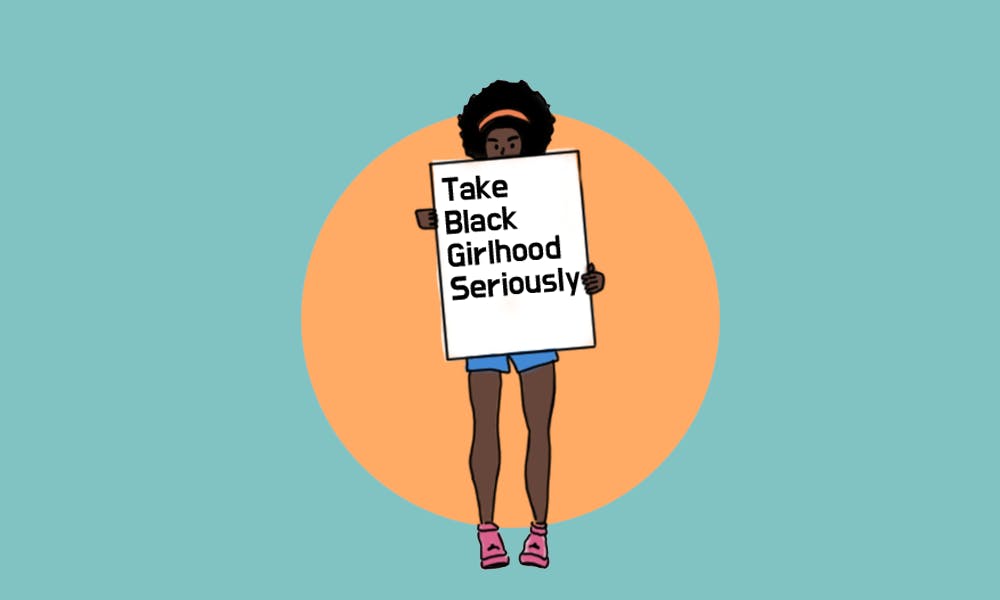“There are just some places where it’s not enough to be me.” — Starr Carter, “The Hate U Give”
That sentiment, written by Angie Thomas on the first page of her young adult novel, is one that I have felt almost all my life — I’ve often wanted to be something more than what I am.
I turned to books at a young age as a portal into a world of possibility when I couldn’t see it in my daily life; reading Harry Potter seemed to be the only way I could transform into someone worthy of being Chosen. Like younger Kaliyah, young Starr is obsessed with Harry Potter, and from the small details to the major plot points, there was very little throughout the story that I couldn’t relate to.
There are two versions of Starr in the story: “Garden Heights Starr and Williamson Starr.” One lives in “the ghetto” and works at her dad’s store, while the other goes to prep school and has a white boyfriend. Code-switching is one thing that any black person at a predominantly white institution, or PWI, can relate to. If you are unfamiliar with the term, code-switching is the act of altering how you communicate depending on the social setting. This means, for Starr, never using slang or wearing hoodies at Williamson, and making sure she doesn’t seem “too white” in Garden Heights.
There are many reasons for and effects of code-switching, but the problem that I think the film, “The Hate U Give,” — which was directed by George Tillman Jr. and is still in theaters — combats most effectively is the near-erasure of black girlhood.
As a young black woman in America, there are many spaces where it doesn’t feel like enough to be a young black woman. In all aspects of life — music, film, books, TV, social media, reality — the black woman is given the role of a supporting character. There is an expectation of black women, starting from a young age, to be immune to human emotion, unnaturally strong, and never angry. I believe that this allows others to see black girls as exempt from natural human needs, desires, and mistakes; the expectation allows society to treat black girls as women and white girls as girls. Girlhood becomes a privilege that black girls don’t receive.

I’m not just saying that the people with the most power neglect the narrative of the black girl, though they do. I’m saying that we, as a society, fail to take black girlhood seriously.
SEE MORE FROM KALIYAH DORSEY:
Why I was anti-relationship coming into college — and why I changed my mind
“The Hate U Give” shows us that the black girl is neither a flat character, nor should she feel the need, or even desire, to be anything but what she already is. At a young age, Starr is dealing with complex emotions and events that no child should have to go through, with emphasis on the fact that this is a reality for many in communities like hers. Starr experiences police brutality, racism, and gang violence, but also her boyfriend springing a condom on her when she doesn’t expect it, feeling like an outsider at a party, and mean girls in high school.
For me, “The Hate U Give” wasn’t an escape to something greater or more magical, as Harry Potter was, but a reflection of my own experiences. Yes, Starr is experiencing heartbreaking discrimination, but she is also a girl making mistakes and navigating love with awkwardness and embarrassment at every turn. It felt like recognition that the story of a black girl is worth sharing in its entirety.
The phrase “black girl magic” is meant to empower, but it is important to realize that there is no magic involved in what black girls have to go through everyday, no wand or portal we can jump into when things get hard. Black girls, and women, should not be expected to be superhuman, but should be recognized for our humanity instead. Starr says, near the end of the story, “I can’t change where I come from or what I’ve been through, so why should I be ashamed of what makes me, me?” Black girls’ narratives are our country’s stories — we’d all do better to listen.

KALIYAH DORSEY is a College freshman from Pennsauken, N.J., studying English. Her email address is kaliyahd@sas.upenn.edu
SEE MORE FROM KALIYAH DORSEY:
Why I was anti-relationship coming into college — and why I changed my mind









